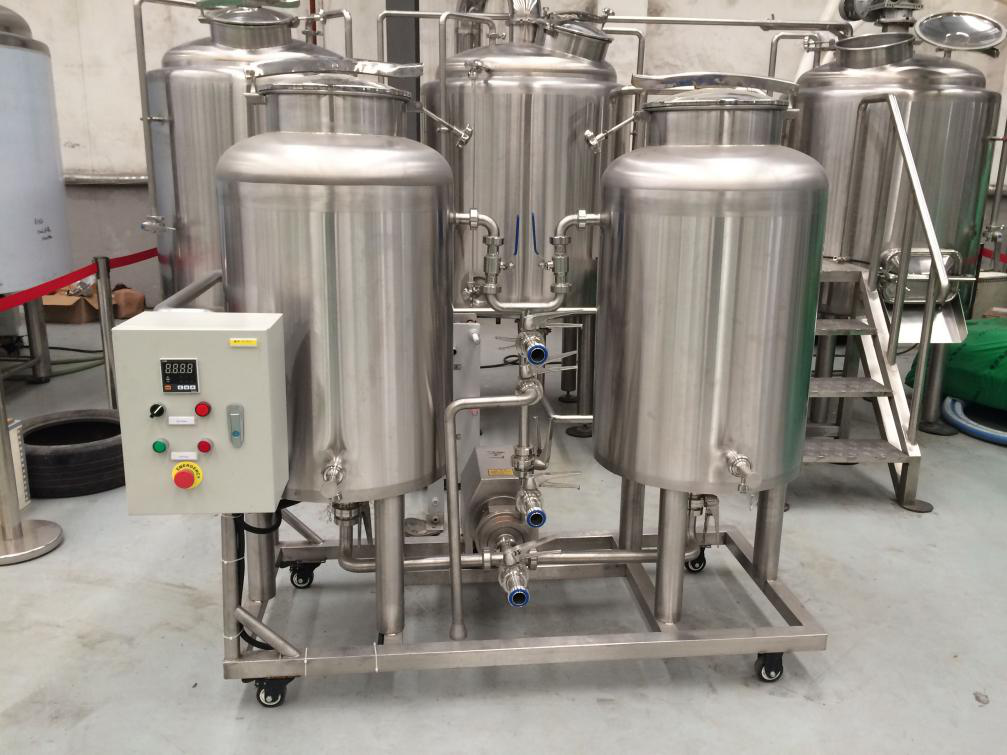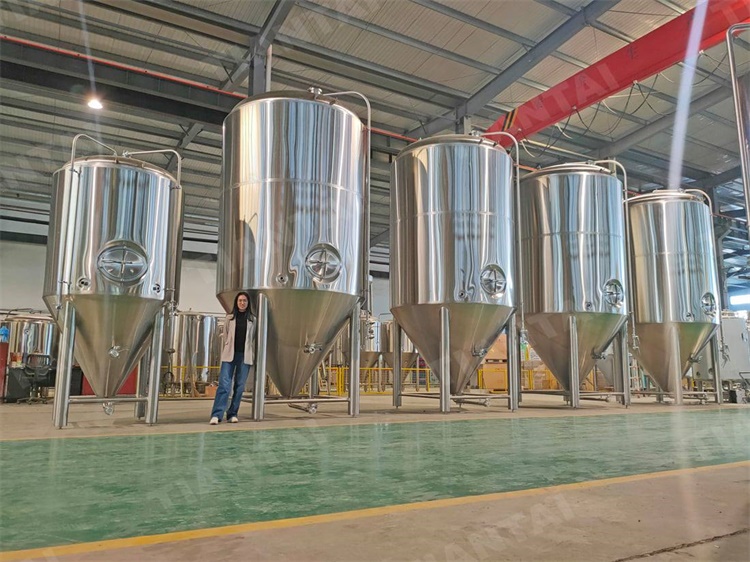including miller, brewhouse , fermenters, brite beer tanks, beer bottling machine,beer canning machine, wine and Kombucha eqiupment, distiller equipment.Choosing the size and number of beer fermenters in a microbrewery involves careful consideration of various factors to meet production needs efficiently. Here are some key steps to help guide the decision-making process:
.jpg)
Batch Size and Production Volume: Determine the batch size of beer you want to produce and the overall production volume. This will influence the size and number of fermenters required. Larger batch sizes will necessitate bigger fermenters, while higher production volumes will demand more fermenters to keep up with demand.
Types of Beer: Consider the types of beer you plan to produce. Different beer styles may require different fermentation times, and some styles may benefit from extended conditioning periods. This will impact the turnover rate of fermenters and the number needed.
Fermentation Time: Calculate the average fermentation time for the beers you produce. A longer fermentation time means each fermenter will be tied up for a more extended period, potentially requiring additional fermenters to maintain a consistent brewing schedule.
Turnaround Time: Assess how quickly you want to turn around batches from one fermentation to another. If you aim for a faster turnaround time, you might need more fermenters to handle overlapping fermentation schedules.
Space Constraints: Evaluate the available space in your microbrewery. Larger fermenters may require more floor space, and you need to ensure you have enough room for proper equipment installation and maintenance.
Investment Budget: Consider your budget for purchasing fermenters. Larger fermenters and additional units will come with higher costs. Balance your production needs with your investment capacity.
Flexibility and Variety: Think about whether you want to produce a wide variety of beer styles or prefer to focus on a smaller range. More fermenters can provide flexibility in production, enabling parallel brewing and a broader beer portfolio.
Future Growth: Account for future expansion plans. If you anticipate growing your brewery, it might be more cost-effective to invest in slightly larger fermenters now to meet increased demand later.
Energy Efficiency: Larger fermenters can be more energy-efficient than multiple smaller ones. Consider the long-term energy costs and the overall sustainability of your brewing process.
Logistics and Handling: Factor in the logistical aspects of handling the fermenters, such as cleaning, sanitization, and yeast harvesting. Having more fermenters may require more labor for maintenance.
By carefully analyzing these factors, you can make informed decisions about the size and number of bee conical fermenters that best suit your microbrewery equipment's needs, ensuring efficient production and meeting the demands of your customers. It's also essential to stay updated with the latest beer brewing equipment technologies and industry trends to make informed choices for your brewery's success.
If you are interested in any beer brewery equipment, please feel free to contact us:
Ivy Liang(Sales Director)
Email: [email protected]



.jpg)


Get In Touch